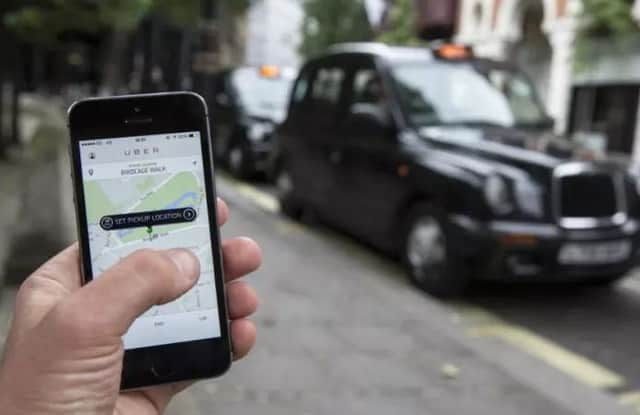Gig economy firms face crackdown over exploitation concerns


A new report calls for the emergence of Scots-based platforms to challenge the dominance of the Silicon Valley giants such as Uber and Airbnb, as well as other operators, to provide a fairer deal for workers.
Scots are increasingly reliant on such platforms in the modern digital economy for casual or freelance work, particularly lower-skilled labour such as cleaning and driving. It also covers accommodation sites like Airbnb or sales sites such as Gumtree.
Advertisement
Hide AdAdvertisement
Hide AdA recent backlash against these platforms has emerged, with taxi giant Uber facing a ban from London and other UK cities. Airbnb has provoked anger over its role in Edinburgh’s “party flat” surge.
More than a third of Scots have participated in the new “collaborative” economy and there have been “economic benefits” for people in Scotland, according to a report by an Expert Advisory Panel published yesterday.
But it warned: “We need to be more proactive in shaping the collaborative economy that we want. This is particularly important when considering how collaborative platforms are likely to spread into new markets, eg health and social care sectors.
“We cannot be negotiating with Silicon Valley about the terms for delivering care in Scotland and if we don’t want to find ourselves in that position, we need to act.”
The report also calls on the Scottish Government to support “social innovation and serious digital entrepreneurs” in Scotland.
“There are clear and large-scale opportunities for new platforms,” the report added.
“While Uber and others dominate the headlines, there are other, smaller ventures and emerging gig economy platforms that present a better deal for everyone.”
The report also said major cities like Edinburgh could be allowed to bring in a 90-day limit on the amount of time properties are rented on short-term lets, although this could be relaxed at peak periods like the summer and winter festivals. This is line with a recent announcement by Airbnb for a crackdown amid concerns in the Scottish capital.
Advertisement
Hide AdAdvertisement
Hide AdMr Brown said: “As the collaborative economy grows, it is becoming ever clearer that we need to ensure it works for the good of the consumers and our wider economy, and that unscrupulous elements are not able to exploit the system.”